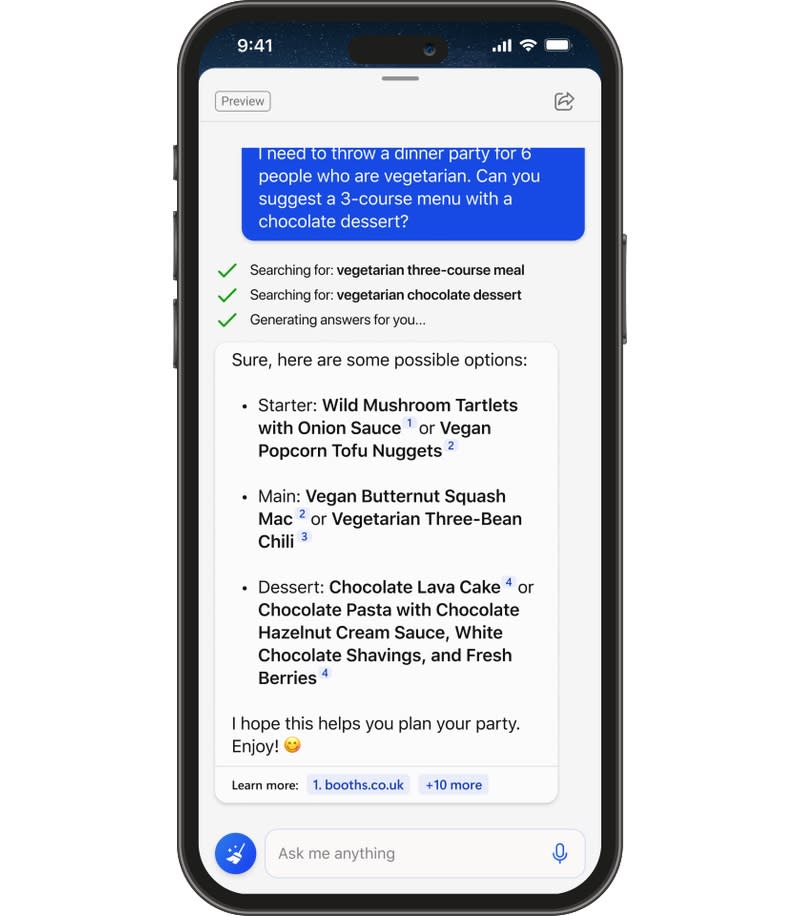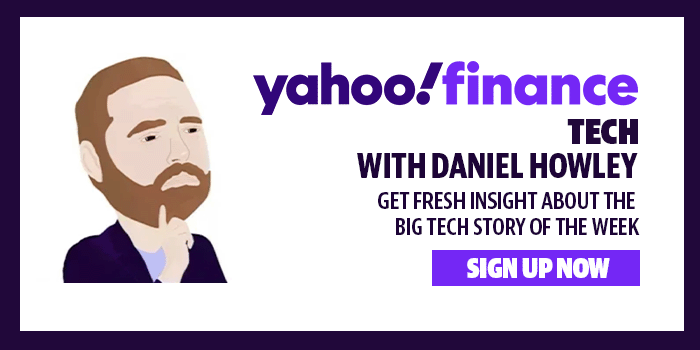Microsoft is bringing ChatGPT-powered Bing to your smartphone, challenging Google
Microsoft (MSFT) on Wednesday announced that it’s rolling out the mobile versions of its A.I.-powered Bing and Edge browser apps. The move is the next step in Microsoft’s effort to steal market share in the search advertising market from rival Google (GOOG, GOOGL).
Google has a firm grip on the search market, controlling 85% of the global market share on desktop computers and 96% of the search market on smartphones thanks to its Android operating system, according to StatCounter. Bing currently holds just 8.9% of the desktop market and 0.48% of the mobile market.
Microsoft first introduced the new Bing, which runs an enhanced version of OpenAI’s ChatGPT, along with its improved Edge browser for laptops and desktop computers only during a press event at its Redmond, Washington, headquarters on Feb. 7.
Microsoft knew it couldn’t ignore the mobile market, though. The majority of internet-connected people on Earth access the web via their smartphones. If Microsoft wanted to reach those people, it needed mobile versions of its apps.
“Because we know 64% of searches occur on mobile phones, we are releasing all new Bing and Edge mobile apps to serve as your copilot for the web even when you are away from your desktop,” Microsoft corporate VP and consumer CMO Yusuf Mehdi said in a blog post.
As with Bing and Edge for the desktop, you can ask the mobile apps to write you a story, figure out an error in a line of code, or plan an itinerary for an upcoming trip to a city you’re unfamiliar with.

But Microsoft faces significant headwinds in ensuring that users choose its search apps over Google’s Search and Chrome apps. Microsoft’s offerings are third-party apps that you need to first download from an app store and log into to use.
Google, meanwhile, offers Google Search and Chrome on all licensed Android smartphones. According to StatCounter, Android, Google’s mobile operating system, controls 71.7% of the global smartphone market. That’s a massive number of devices already running Google products.
What’s more, Google previously inked a deal with Apple (AAPL) to be the default search engine in the iPhone maker’s Safari browser, giving Google an even greater jump on Microsoft.
The tech giant is banking on Bing’s A.I. capabilities to make it a more appealing option than Google’s own offerings. So far, Microsoft says some 71% of its more than 1 million testers have given Bing’s responses to their questions a thumbs up. Users can rate the A.I.’s responses with a thumbs up, thumbs down, or point to a specific issue they’ve experienced.
But Bing, like ChatGPT, has also given strange answers to users’ questions during its preview phase, with the software claiming it can spy on Microsoft workers via their webcams (it can’t) among other things. Microsoft has responded by lowering the number of questions a user can ask per chat session, saying that too many queries can confuse the service.
As for Google, it’s currently testing its own competing generative A.I. platform called Bard. That service, which is limited to a small group of what Google called trusted users, could knock Bing out of contention if it’s able to one up the platform in terms of overall performance.
More from Dan
There's no going back on A.I.: 'The genie is out of the bottle'
ChatGPT is less than a year old, but one expert says this A.I. model is 'peaking'
Microsoft takes aim at Google with launch of new ChatGPT-powered Bing, Edge browser
Got a tip? Email Daniel Howley at dhowley@yahoofinance.com. Follow him on Twitter at @DanielHowley.
Read the latest financial and business news from Yahoo Finance

